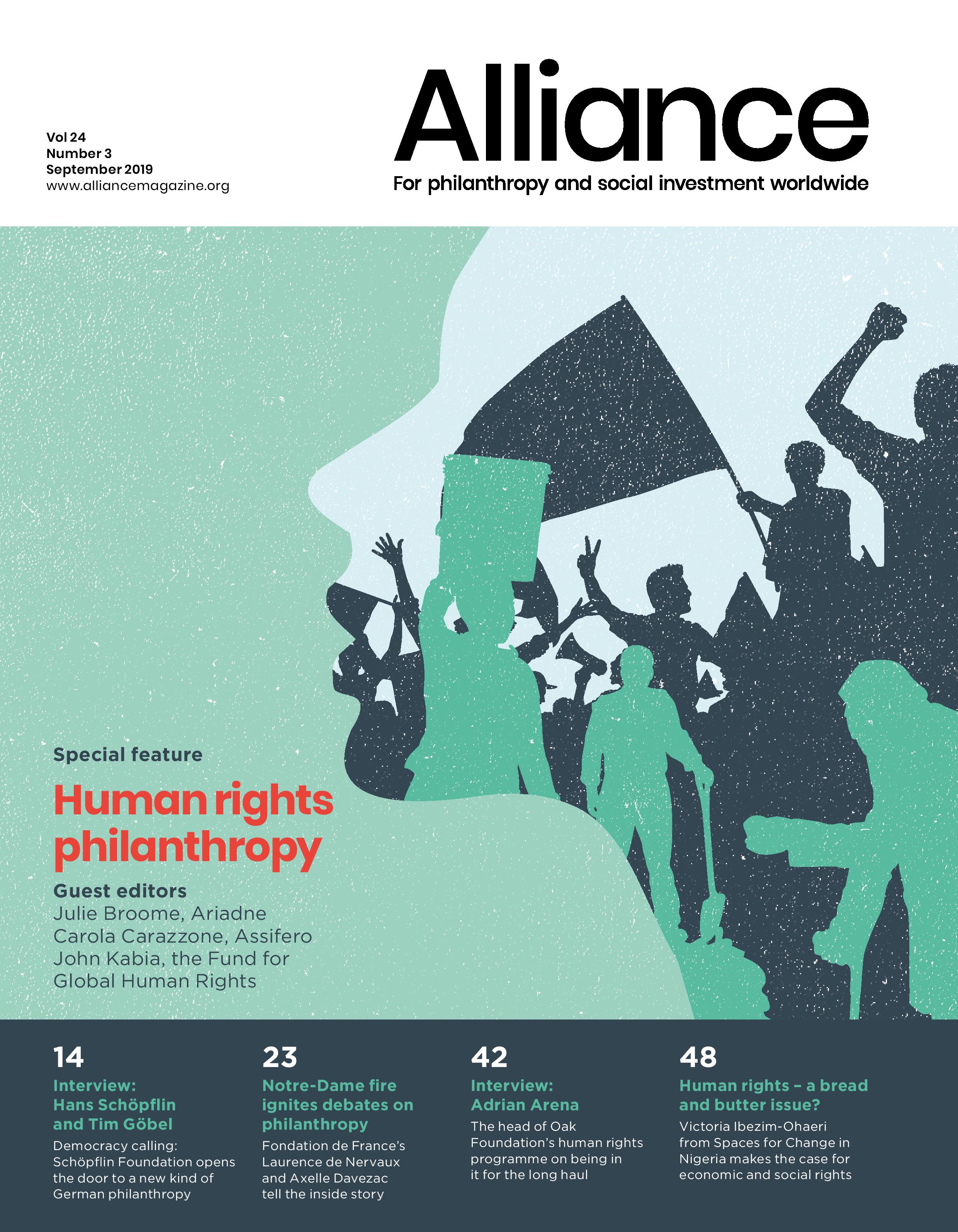The call for an enabling environment from the European Economic and Social Committee (EESC) may prove a milestone for giving in Europe
The first European Economic and Social Committee Opinion entirely dedicated to philanthropy comes at a crucial time and sets the tone for philanthropy-related debates throughout the new mandate of the European Parliament and Commission. At a time when core values such as democracy, rule of law and fundamental rights are being challenged in some Member States, philanthropy has a crucial role to play alongside wider civil society to defend our core values.
In line with EU freedoms, the Opinion calls on EU Member States to establish an enabling environment for philanthropy. The Opinion also stresses the importance of philanthropy for the common good and for social cohesion, with very clear policy recommendations for ways forward. While business can operate easily across borders, philanthropy cannot. There are various possible ways of addressing this, including supranational legal forms to facilitate philanthropic engagement. The Opinion asserts that Member States should ensure the application of the freedom of capital, coupled with the non-discrimination principle, to facilitate cross-border philanthropy.
Philanthropy is not just about large donors. Millions of Europeans engage in philanthropy, giving money, time, skills and goods.
The EESC Opinion reiterates that national and EU security measures must be proportionate and evidence-based. It also suggests that the EU could leverage the impact of private resources for the common good by stimulating co-investment and social impact investment by philanthropic actors. It should also facilitate engagement in social innovation and there are some potentially interesting proposals at EU level in the pipeline. These are important messages to policymakers, and will be critical in our advocacy work.
In addition, our involvement in the Opinion drafting process indicates many lessons for our sector which will help us in future exchanges with European policymakers.
First, philanthropy is either not on the European agenda or not prominent enough. Considering how diversified philanthropy has become, the sector will have to continue both technical discussions with EU and national bodies on specific matters as well as affirming the more general picture of what philanthropy contributes to our societies. These will be priorities for the Philanthropy Advocacy Initiative that DAFNE and EFC are managing jointly.
Philanthropy can help Member States/public actors but cannot and should not replace the state.
Storytelling and using the right arguments will be key here. During the public hearing for the Opinion, two philanthropic stories (Kickcancer and Fedora) were presented to demonstrate the value of philanthropy. This had a positive impact and it is something which we should do more when engaging with policymakers. Philanthropy is not just about large donors. Millions of Europeans engage in philanthropy, giving money, time, skills and goods. This is taken for granted by the sector, but should be emphasised to the general public and policymakers. During discussions on the Opinion, philanthropy’s impact was brought to life with examples from regions, villages and neighbourhoods. Adopting a broad description in the Opinion of what philanthropy represents, rather than attempting a definition, allowed us to include all these stories and the diverse nature of forms of philanthropic engagement.
The sector needs to develop and improve existing studies and be able to follow philanthropic trends by gathering data from all over Europe.
Demonstrating the complementary role of philanthropy to public action will also be key in the coming years. Philanthropy can help Member States/public actors but cannot and should not replace the state. On the contrary, it is through enhanced dialogue, collaboration and exchange that synergies will be created to tackle societal issues.
Finally, relevant data on the sector is still missing. The sector needs to develop and improve existing studies and be able to follow philanthropic trends by gathering data from all over Europe. This will require innovative ways of sharing information. To this end, plans for an annual European ‘philanthropy barometer’ are in development.
Now that the Opinion is released, our sector has to build on it and continue to make progress with the EESC, with other EU institutions and with national policymakers, by turning its recommendations into action.
An earlier version of this article appeared in DAFNE’s Philanthropy Europe e-newsletter in June 2019: ‘European philanthropy: An untapped potential’ https://tinyurl.com/EESC-opinion
Ludwig Forrest is a senior programme coordinator at the King Baudouin Foundation.
Email: Forrest.L@Kbs-frb.be
Twitter: @k_b_foundation





Comments (0)